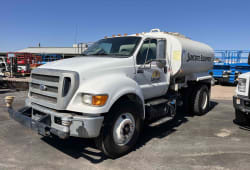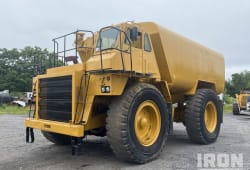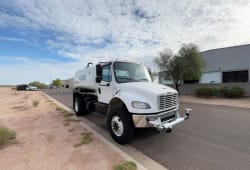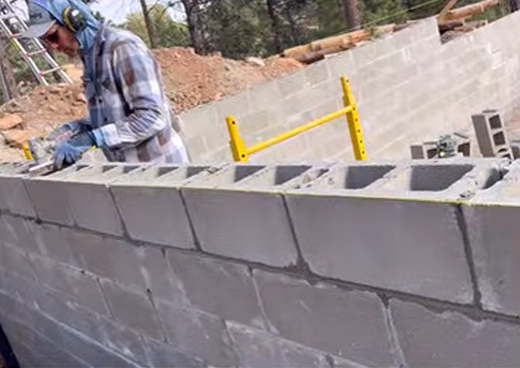Tailored to Perfection: Your Ideal Tank Trailer Truck
9 Min read
)
September 9, 2023
Tank trailers and trailer trucks have become an integral part of various industries, serving the transportation needs of liquids, gases, and bulk materials. These versatile vehicles offer numerous advantages, making them a popular choice for businesses and individuals alike. In this comprehensive guide, we will explore the world of the largest tankers and trailer trucks, from their diverse types to the essential features to consider when choosing one. We will also delve into the customization options available, the associated costs, and the critical maintenance practices to keep your tank trailer truck operating at its best.
Tank Trailer Trucks: A Versatile Solution
:format(webp))
Tank trailer trucks, often simply referred to as tanker trucks, come in various sizes and configurations to cater to a wide range of applications. Their versatility is one of their primary benefits, as they can transport liquids such as water, chemicals, and petroleum products, as well as dry bulk materials like grain, cement, and sand. This adaptability makes asphalt tankers and trailer trucks indispensable in industries like logistics, agriculture, construction, and energy.
Efficiency and Cost-Effectiveness
One of the key advantages of using diesel in a tank trailer truck is its efficiency in transporting large quantities of cargo. They offer a higher payload capacity compared to traditional drums or containers, reducing the number of trips required. This efficiency translates into cost savings on fuel and labor, making them a cost-effective choice for businesses.
Types of Tank Trailer Trucks
:format(webp))
Tankers and trailer trucks come in several different types, each designed for specific cargo and operational requirements. Let's explore some of the most common types:
Liquid Tanker Trucks
Liquid tanker trucks are designed to transport liquids, including water, milk, chemicals, and petroleum products. They typically feature cylindrical tanks made of stainless steel or aluminum to prevent corrosion and contamination. These tanks are insulated and often have multiple compartments to carry gallons of different liquids simultaneously.
Dry Bulk Tanker Trucks
Dry bulk tanker trucks are ideal for transporting granular or powdered materials such dry bulk material such as grain, cement fuel oil, sugar, or plastic pellets. These trucks have specialized tanks equipped with a discharge :system, usually via air pressure or gravity, to efficiently unload the cargo.
Gas Tanker Trucks
Gas tanker trucks are specifically built to transport gases like propane, natural gas, or compressed air. These full-tank trucks have high-pressure tanks and safety features to handle volatile and pressurized cargo safely.
Vacuum Tanker Trucks
Vacuum tanker trucks are used for the collection and transport of liquids, oil, sludge, and hazardous waste. They utilize a vacuum pump to create a high center of suction, allowing them to load and unload materials efficiently.
Asphalt Tanker Trucks
Asphalt tanker trucks and trailers are designed to transport hot liquid asphalt for road construction and maintenance. They have insulated tanks, cylinders, and heating systems to keep the asphalt at the desired temperature during transportation.
Food-Grade Tanker Trucks
Food-grade tanker trucks are equipped to transport food products like milk, juice, or edible and vegetable oils. They feature tanks made of materials that meet food safety regulations and are easy to clean.
The Features to Consider When Choosing a Tank Trailer Truck
When selecting a gasoline tank trailer truck, several critical features and factors should be taken into account to ensure it meets your specific needs and requirements.
Tank Material and Coating
The material and coating of the tank are crucial considerations, especially when transporting liquids. Stainless, carbon steel and aluminum are common choices due to their corrosion resistance and durability. Some tanks may also have specialized coatings to prevent contamination or chemical reactions.
Capacity and Compartmentation
The tank's capacity should match your cargo volume capacity requirements. Additionally, if you need to transport multiple types of cargo simultaneously, opt for a tank with compartments to keep various materials to prevent cross-contamination.
Safety Features
Safety is paramount when dealing with hazardous or pressurized cargo. Look for safety features such as emergency vents, pressure relief valves, and rollover protection systems to ensure the well-being of both the operator and the environment.
Suspension and Axle Configuration
The suspension system and axle configuration impact the stability and load-bearing capacity of the tank trailer. Consider your intended use of a tanker trailer and the road conditions you'll encounter when selecting the appropriate configuration.
Pumping and Discharge Systems
Efficient loading and unloading are critical for productivity. Ensure the tank trailer is equipped with a suitable pumping and discharge system for your cargo type, whether it's gravity discharge, pneumatic discharge, or a specialized pumping mechanism.
Regulatory Compliance
Different types of cargo may require tanker trailers in compliance with their company-specific regulations and certifications. Ensure that the tank trailer meets all necessary legal and safety standards for your industry.
How to Customize Your Tank Trailer Truck
Customizing your tank trailer truck can provide additional functionality and convenience tailored to your unique requirements. Here are some common customization options:
Graphics and Branding
Custom graphics and branding can enhance the aesthetics of your tank trailer while also serving as a promotional tool for your business.
Additional Compartments
If you need to transport multiple types of cargo, consider adding extra compartments to your tank to keep them separate and prevent contamination.
Insulation and Heating Systems
For those hauling temperature-sensitive cargo like chemicals or food products, installing insulation and heating systems can maintain the desired temperature throughout the journey.
Specialized Pumps and Hoses
Depending on your cargo, you may require specialized pumps and hoses to ensure maximum capacity and efficient loading and unloading.
Safety Upgrades
Enhance safety with features like additional emergency vents, spill containment systems, and advanced monitoring equipment.
The Cost of Customizing a Tank Trailer Truck
To provide a more concrete idea of customization costs, here are a few pricing examples for common customization options:
Additional Compartments:
Adding compartments to your tank trailer to carry multiple types of cargo can range from $2,000 to $5,000 or more, depending on the complexity and size of the compartments.
Insulation and Heating Systems:
Installing insulation and heating systems for temperature-sensitive cargo can cost between $3,000 and $7,000, depending on the tank size and insulation type.
Safety Upgrades:
Enhancing safety features, such as adding emergency vents, spill containment systems, and advanced monitoring equipment, may incur an additional cost of $1,500 to $4,000 or more, depending on the chosen upgrades.
Graphics and Branding:
Custom graphics and branding options typically range from $500 to $1,500, depending on the complexity of the design and materials used.
Specialized Pumps and Hoses:
If your cargo requires specialized pumping and hose systems, budget between $1,000 and $3,000, depending on the complexity of the setup.
Overall Customization Package:
For a comprehensive customization package that includes multiple features and upgrades, expect a total cost ranging from $5,000 to $15,000 or more, depending on the specifics of your customization needs.
How to Maintain Your Tank Trailer Truck
:format(webp))
Proper maintenance is vital to ensure the longevity and safe operation of your tank trailer truck. Neglecting maintenance can lead to costly repairs, downtime, and safety hazards. Here are some essential maintenance practices:
Regular Inspections:
Schedule routine inspections to meticulously scrutinize your tank trailer. Look for any signs of wear, corrosion, or damage to critical components such as fuel tank trailers, valves, hoses, and other crucial parts. Early detection of issues can prevent them from escalating into major problems.
Cleaning and Sanitization:
After each use, it's imperative to thoroughly clean and sanitize the tank, especially if it has transported food products or hazardous materials. This practice not only ensures hygiene and safety but also extends the life of your equipment.
Leak Detection:
Implementing a dependable leak detection system is a proactive measure to safeguard against spills or leaks. Regularly test this system to ensure it functions correctly. Detecting leaks early can mitigate environmental damage and potential accidents.
Tire Maintenance:
Your tank trailer's tires play a pivotal role in its safety and efficiency. Regularly check tire pressure to ensure it's within the recommended range. Additionally, monitor tread wear and inspect the overall condition of the tires. Well-maintained tires are crucial for safe and efficient operation.
Brake and Suspension Maintenance:
The braking system and suspension components are critical for your tank trailer's safety. Regularly inspect and maintain these components to prevent accidents and ensure stability during transport. Well-functioning brakes and suspension are essential for safe and smooth journeys.
Training and Education:
A well-trained team is your first line of defense against accidents and mishaps. Provide comprehensive training to operators and drivers. Cover topics such as proper handling, loading, and unloading procedures, as well as emergency protocols. A well-prepared team can react swiftly and effectively in critical situations.
Conclusion
Tank trailer trucks are versatile and efficient vehicles that can be used to transport a wide variety of liquids, gases, and bulk materials. When choosing a tank trailer truck, it is important to consider the type of cargo you will be transporting, the capacity you need, and the safety features that are important to you. You may also want to consider customizing your tank trailer tanker truck, to meet your specific needs.
Proper maintenance is essential to ensure the longevity and safe operation of your tank trailer truck. Regular inspections, cleaning and sanitation, leak detection, tire maintenance, brake and suspension maintenance, and training and education are all important practices to follow.
By following these tips, you can choose the right tank trailer truck for your needs and ensure that it is properly maintained for years to come.

Caleb Woods is an experienced content specialist and an editor at Boom & Bucket, blending his journalism background with expertise in the heavy equipment industry. He delivers engaging, informative content to help professionals stay informed and make smarter decisions in the machinery market.














